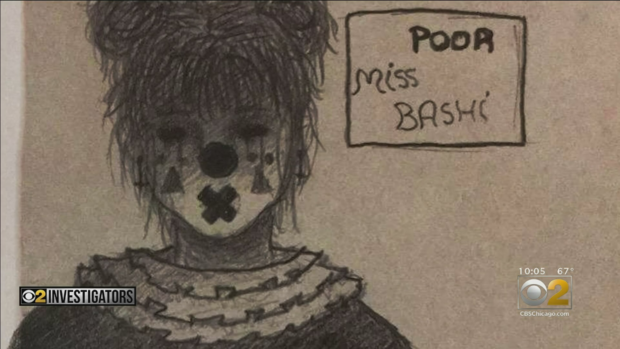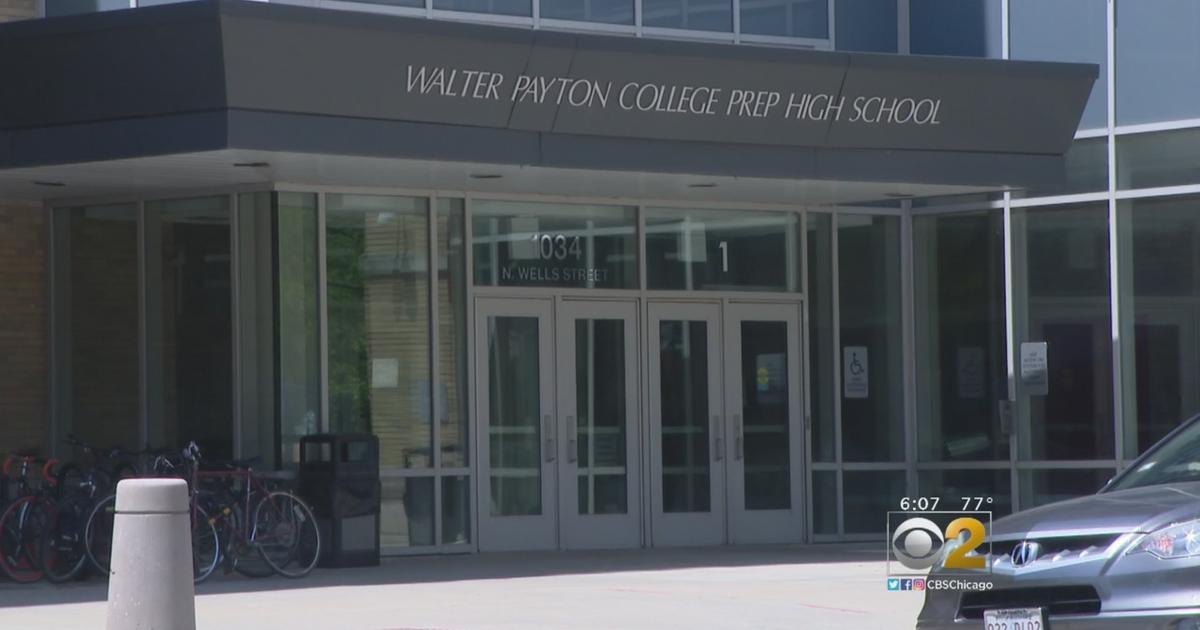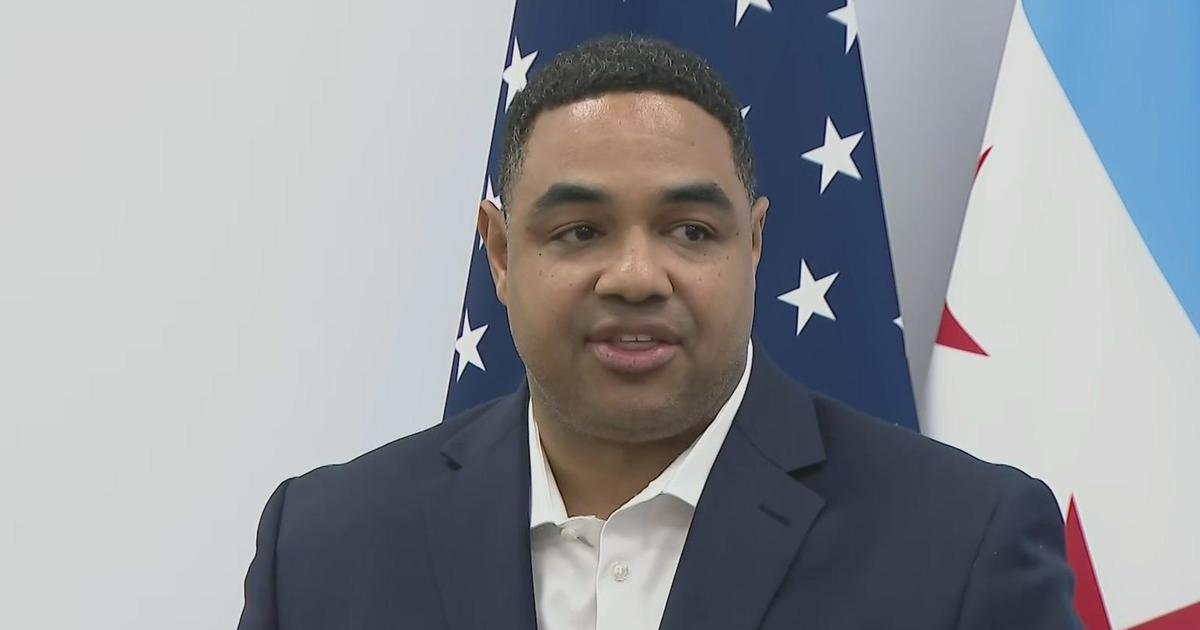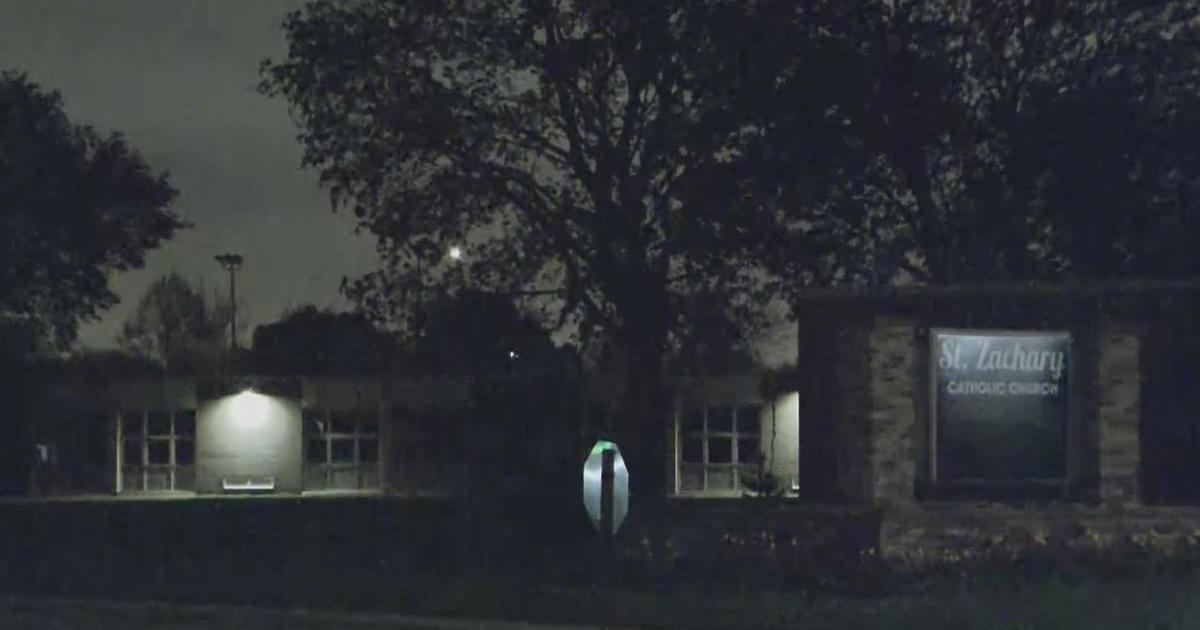Some Illinois Schools Gave More Failing Grades After COVID Began
By Megan Hickey, Michele Youngerman, Chris Hacker
CHICAGO (CBS) — Like thousands of students across Illinois, McKena May started her first day of high school last fall learning remotely.
With her world turned upside-down by the COVID-19 pandemic, faced with a second year of virtual learning, May began to struggle almost immediately. That first semester, May, who isn't used to failing classes, got two Fs.
"Everything just kind of went downhill," May said. "I didn't really understand what we were learning."
May's mom, Jen Merritt, said she first noticed her daughter's struggle in her artwork. May always loved to draw, but during the pandemic, Merritt said, May's art became darker — a reflection of the challenges she faced while coping with the isolation of remote learning.
"This young girl that looks like she's crying," Merritt said. "She's been through trauma, and it did worry me a lot."
McKena wasn't alone in that struggle. During the 2020-2021 school year, many schools across the Chicagoland area gave out more failing grades than they did before the pandemic started, according to data obtained by CBS 2.
CBS 2 sent Freedom of Information Act requests for student grade data to more than 30 school districts in Illinois. From 13 of those schools, we received grade data — which doesn't contain student names — from the pre-pandemic 2018-2019 school year through the 2020-2021 school year.
Eight of those school districts handed out far more failing grades in English, social studies, math and science courses last year than before the pandemic. During the 2018-2019 school year, those schools gave out a combined 548 Fs. Last year, that number more than tripled to nearly 2,000.
Has your child struggled academically due to COVID-19? Do you have other concerns related to education during the pandemic? We want to hear from you. Contact us here.
Elaine Allensworth, who runs the Consortium on School Research at the University of Chicago, said many students fared similarly to May. Kids who were capable students before the pandemic suddenly found themselves falling behind as they struggled with isolation, the limitations of remote learning and other pandemic-related stressors.
"What works for students [before the pandemic] may not be working now, under a new context, especially when now there are all of these requirements around technology and how you'll be able to work independently," Allensworth said.
That was certainly the case for May, who said she struggled when learning from behind a screen.
"With not being able to really contact anybody, and, like, be around people socially, I did go into a depression," May said. "All of that really negatively impacted me on how I did develop during that time."
When the pandemic started, schools took steps to mitigate the impacts of COVID-19 on students' grades. In their March 2020 guidance on remote learning, the Illinois State Board of Education recommended schools do their best to avoid giving failing grades.
"Ideally, all Illinois students will pass their assignments during remote learning as this is a new and unprecedented set of circumstances," the recommendations read. "This is not a time for failing students or adversely impacting student learning progress."
Initially, the schools we looked at did just that. All 13 schools that provided usable data for this story saw huge decreases in failing grades during spring of 2020, after the pandemic began. Many issued no failing grades at all during that time.
But as summer ended and a new school year began, many districts returned to traditional grading.
That's when the problems began for one north suburban high schooler, whose mom, we will call Vivian, asked we conceal her and her son's identities.
Vivian's son, who typically got A's and B's, started getting mostly C's and nearly failed one class, she said.
"Some days he thought he was just not smart, he thought it was really stupid, but it was just a function of not having a well-developed plan for him," Vivian said.
Allensworth said communication between schools and parents became an even more critical factor for students' success during the pandemic — a factor Vivian said was lacking at her son's school.
"He was failing a class, he had six assignments that were missing, and unfortunately I didn't hear from the school or the teacher … or his counselor," Vivian said.
Vivian, who said she understands teachers were themselves struggling to cope with the unprecedented changes brought on by COVID-19, said teachers failed to notify her about her son falling behind.
Allensworth said her research using Chicago Public Schools data shows high schoolers tended to manage online learning better than middle-school students, and that some schools were more ready to handle remote work than others. The result, she said, is that while some students' grades took a hit, others improved.
Grade data CBS 2 analyzed also found some schools handing out better grades, fewer Fs, during the pandemic. Five of the 13 schools that provided data, gave out fewer Fs, dropping from a combined total of 520 failing grades in the 2018-2019 school year to just 248 Fs last year.
We reached out and shared our findings with every school district that provided data. Read the full responses from those that responded here.
Many of the schools we reached out to told us they took extra care to monitor students who were struggling. Some also said they provided new levels of support during the pandemic, from opportunities to retake failed classes to expanded teacher office hours and extra tutoring.
Allensworth said for those struggling, the most effective help is what she called "high-dosage tutoring" — one-on-one or small group tutoring for up to three sessions a week. Coupled with close monitoring of students whose grades are slipping, that high-dosage tutoring can help students catch up.
"I do start to worry the longer that we have all of this uncertainty, the more difficult that that's going to be," Allensworth said. "But I think the more that we can try to have a stable learning environment for students where they know what to expect, feel safe, supported and challenged, they actually can get through this."
In a statement, Illinois State Board of Education (ISBE) spokesperson Januari Trader said different schools have different needs, and that "ISBE is focused on ensuring all school districts have the resources and guidance they need to provide students with academic and social-emotional supports locally."
In addition, Trader said the state will use part of the more than $7 billion in federal pandemic funding it received to implement, "high-impact tutoring programs and create social-emotional learning hubs across the state". Details related to those programs will be released in the coming months. The spokesperson also shared mental health resources for students.
For May, what helped the most was simple: a return to in-person learning.
"When we started going hybrid in January of 2021, everything just kind of got a lot better," May said. "I started getting more motivated because that second semester is when I started doing good."
Now, she just hopes it'll stay that way.
"My main concern is just in case we might go back to remote learning," she said. "That's the one thing that I really would not be able to handle."
Got a COVID-19 education-related tip or story to share? Contact us here.
We won't share your story or personal information without your permission.
[contact-form][contact-field label="Name" type="name" required="true" /][contact-field label="Email" type="email" required="true" /][contact-field label="Website" type="url" /][contact-field label="Message" type="textarea" /][/contact-form]




